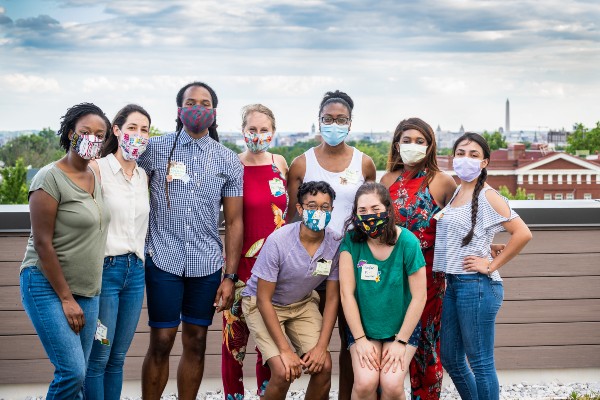
Leadership in Advocacy, Under-resourced Communities and Health Equity (LAUnCH) Track


The mission of the award-winning Leadership in Advocacy Under-resourced Communities and Health Equity (LAUnCH) Track is to train a new generation of physicians who will create successful community partnerships and integrate public health concepts into the everyday practice of medicine to improve the health of under-resourced communities.
The LAUnCH Track provides a supportive and cohesive learning community that focuses on improving the health of under-resourced children. Residents in the LAUnCH Track develop knowledge and skills in health policy, advocacy, community healthcare delivery, addressing social determinants of health, and becoming community leaders. The training for the LAUnCH Track is integrated with the overall pediatrics residency program to ensure excellence in the attainment of clinical skills and to allow residents the opportunity to work with CNH’s top-rated primary care, hospitalist, and subspecialist physicians. The inpatient portions of the LAUnCH Track are similar to those of the Categorical Track. The fundamental difference in this track is the 6 LAUnCH-specific rotations, the community-based clinical training experiences, and the community-focused scholarly project through the REACH Program. Given our program’s location in the nation’s capital, LAUnCH Track residents have unparalleled access to the local, state and federal government and to advocacy organizations, including national organizations with their headquarters in Washington, D.C. This gives our residents the opportunity to have unique advocacy experiences with groups that are influencing not only local policy but also national and international policy for children and healthcare.
The goals of the LAUnCH Track are centered on the eight-core competencies of community pediatrics as described by the American Academy of Pediatrics:
- Grasp the breadth of diversity inherent in the pediatric population and be familiar with health-related implications of cultural beliefs and practices of groups represented in the community
- Recognize the role of the pediatrician in identifying needs and facilitating access to resources for patients, families and communities
- Understand the definition of a medical home and how the resident’s continuity site can meet all components of the definition
- Be aware of the risks to health and barriers to care for under-resourced children in Washington, D.C., and demonstrate skill in improving access to continuous comprehensive health maintenance
- Appreciate key issues related to the pediatrician’s role and interactions with local community agencies and advocacy groups
- Value the role of schools and child-care settings in supporting the educational and psychosocial development of children and adolescents
- Apply key principles about health promotion and disease prevention for children and adolescents in a longitudinal project
- Observe, interpret and report observations about the communities in which they serve

Explore Our Program
Our Curriculum
Learn about the curriculum requirements for the LAUnCH Track.
Faculty and Staff
View the faculty for the LAUnCH Track in the Pediatric Residency Program.
Frequently Asked Questions
Take a look at our frequently asked questions about the LAUnCH Track.
Quotes from Residents
Take a look at quotes from residents that were in the Leadership in Advocacy, the Underserved, and Community Health (LAUnCH) Track for the Pediatric Residency Program.
Research and Accomplishments
Learn about research and accomplishments in the LAUNCH residency track.



